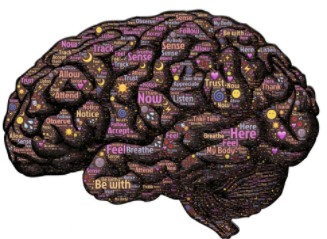The Benefits of Being Mindful

Sectors of the human brain.
An idea that is going mainstream and growing its followers, mindfulness is defined as “the basic human ability to be fully present, aware of where we are and what we’re doing, and not overly reactive or overwhelmed by what’s going on around us” (What is Mindfulness?).
It helps concentration and reduces anxiety and depression. Many scientists all over the world have studied it and its positive effects on the human brain. Neuroscientist Sara Lazar and a team at Harvard found that mindfulness and continuous meditative practices changes the brain’s structure, “Eight weeks of Mindfulness-Based Stress Reduction (MBSR) was found to increase cortical thickness in the hippocampus, which governs learning and memory, and in certain areas of the brain that play roles in emotion regulation and self-referential processing. There were also decreases in brain cell volume in the amygdala, which is responsible for fear, anxiety, and stress – and these changes matched the participants’ self-reports of their stress levels, indicating that meditation not only changes the brain, but it changes our subjective perception and feelings as well” (7 Ways Meditation Can Actually Change The Brain). With the large amount of stress on people and students today, mindfulness is important for people to incorporate in their everyday lives. Take 5 or 10 minutes to sit and try to pay attention to the present moment trying not focus on any other thoughts. When feeling like other thoughts are taking control, let them drift and bring yourself back to the present moment.
Schools all over the country are acknowledging the benefits of mindfulness and teaching students about it in classes. It has brought significant improvements into classes, students pay attention, participation increases, self-care and care for others increases as well as self-control. Not only does it benefit the students but also the educators, more educators feel more satisfied with their job and connect better with students.
